WEAPONS (2025)
When all but one child from the same class vanish on the same night, at exactly the same time, a community is left questioning who or what is behind it.

When all but one child from the same class vanish on the same night, at exactly the same time, a community is left questioning who or what is behind it.

Zach Cregger emerged as a formidable new voice in contemporary horror with his sharp and unsettling debut, Barbarian (2022). What began as an unassuming release quickly became a critical and commercial success that deftly blended incisive social commentary on male entitlement, patriarchal systems, and societal neglect with audacious narrative twists and genuine terror.
His ability to navigate abrupt tonal and narrative shifts without sacrificing thematic cohesion positioned him alongside contemporary horror auteurs, including Jordan Peele (Get Out) and Robert Eggers (Nosferatu). Cregger’s eagerly anticipated sophomore effort, Weapons, arrives under a calculated shroud of mystery due to a carefully calibrated marketing campaign designed to heighten anticipation. Warner Bros.’ claim it’s a “true story” has only deepened the intrigue and invited speculation. Though scattered promotional materials have gradually revealed more hints about the premise, the most exciting way for audiences to experience Weapons is by knowing as little as possible.
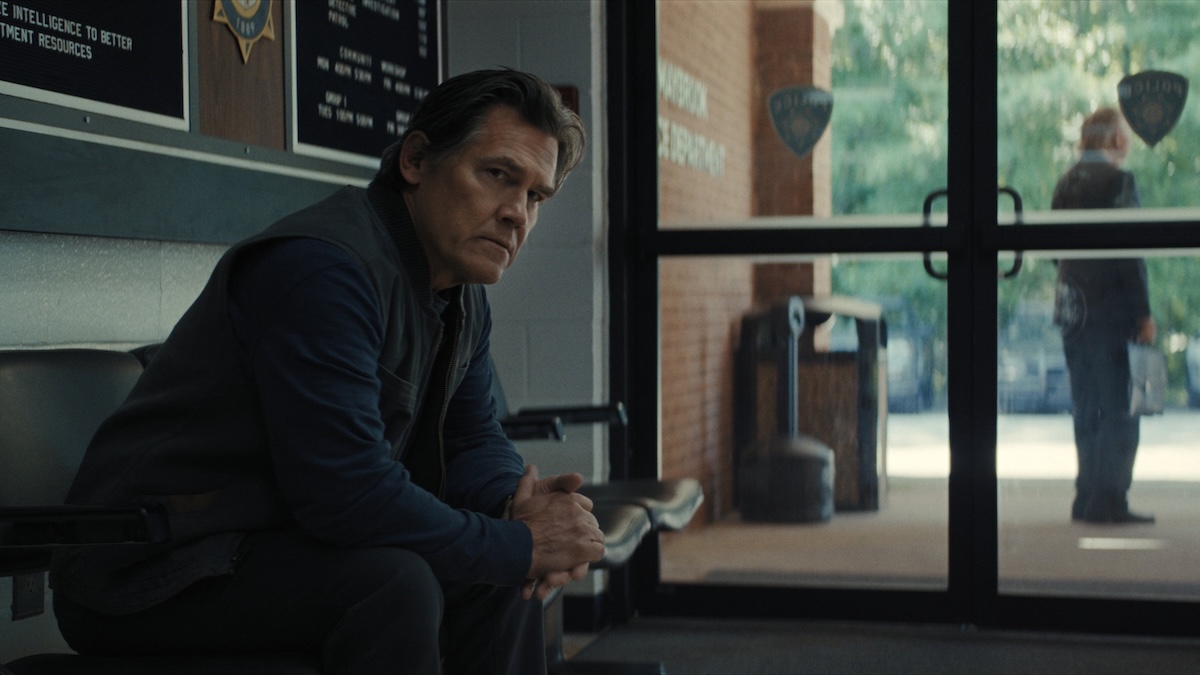
In the quiet Pennsylvania town of Maybrook, an unfathomable event has shattered the community. 17 children from the same elementary school classroom have inexplicably vanished. They were all last seen silently fleeing their homes at precisely 2:17 a.m., running in unison with their arms eerily outstretched into the darkness. Their escapes were recorded by doorbell cameras and security systems throughout the neighbourhood, but the motive behind them remains unanswered. When school begins the following morning, only one child remains present in the classroom, Alex Lilly (Cary Christopher). The mysterious disappearance sparks a community-wide panic, igniting a climate of paranoia and eroding the trust between neighbours, parents, and local authorities. As the police investigation gains momentum and desperation grips the townsfolk, fear transforms into accusations. Whispers grow louder and suspicion begins to coalesce around the children’s teacher, Justine Gandy (Julia Garner).
Since her Emmy-winning portrayal of Ruth Langmore in Ozark (2017-2022), Julia Garner has deftly showcased her remarkable versatility as an actress, appearing in The Royal Hotel (2023), Wolf Man (2025), and Fantastic Four: The First Steps (2025). Here, she continues to emerge as a beacon of genuine talent by leading the ensemble with a remarkably nuanced performance as Justine Gandy. As the schoolteacher whose classroom was mysteriously emptied overnight, she convincingly portrays the profound emotional complexities of a woman navigating the aftermath of the surreal situation. The actress initially presents herself as reserved and understandably apprehensive, drowning under the weight of community suspicion while wrestling with her own demons. However, as the story progresses, her fiercely protective instincts gradually transform into an understated determination, desperate to maintain control. Garner’s phenomenal turn serves as a fragile anchor and proof that, in the correct hands, even the most disjointed narrative can find its emotional core.
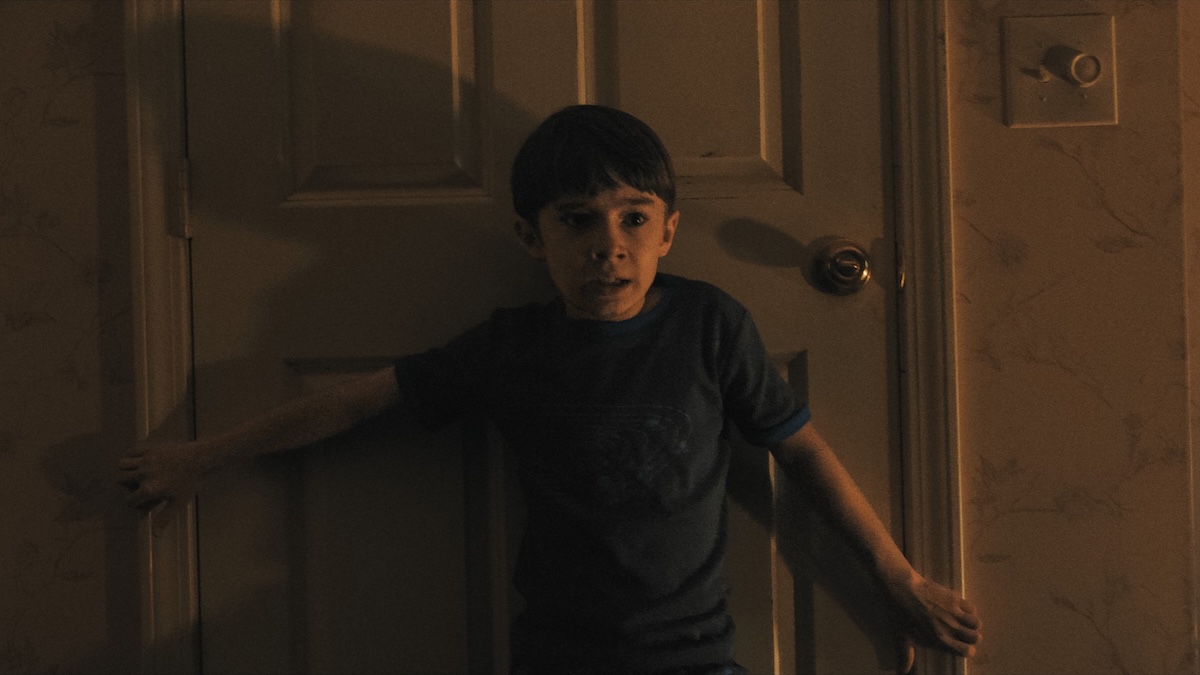
Josh Brolin (Brothers) is equally captivating, portraying a devastated father precariously balancing on the edge of emotional collapse in the wake of his son’s disappearance. As Maybrook’s esteemed contractor Archer Graff, the actor brings his characteristic stoicism and weathered intensity to the role. His confrontational exchanges feel authentically charged with grief and frustration. However, during the quieter moments, there’s a suppressed anguish behind his eyes that subtly unveils the tumultuous emotions of a man grappling with terrible pain. Brolin resists the temptation to indulge in overt displays of melodramatics and embodies an almost repressed sadness that seeps into every mannerism and expression. When those emotions inevitably rupture his composed and restrained surface, the impact is all the more affecting, resulting in a portrait of grief that feels tragically authentic.
Expanding upon the duelling narratives that lent Barbarian its narrative bite, Zach Cregger crafts another sinister tale using an unorthodox structure. Much like the fragmented subjectivity of Akira Kurosawa’s Rashomon (1950), steeped in the psychological unease of Stephen King’s oeuvre, Weapons is divided into several overlapping vignettes that explore various perspectives of the concerned townsfolk following the events of the unfathomable incident.
The opening chapter follows Justine as she struggles to reclaim control over her life while withdrawing from her professional obligations at school. Parallel to her story is Archer, the mourning father obsessed with uncovering the fate of his missing child. Lingering on the periphery of these narratives stands Paul (Alden Ehrenreich), a local police officer whose history with Justine is as complicated as his half-hearted commitment to sobriety.
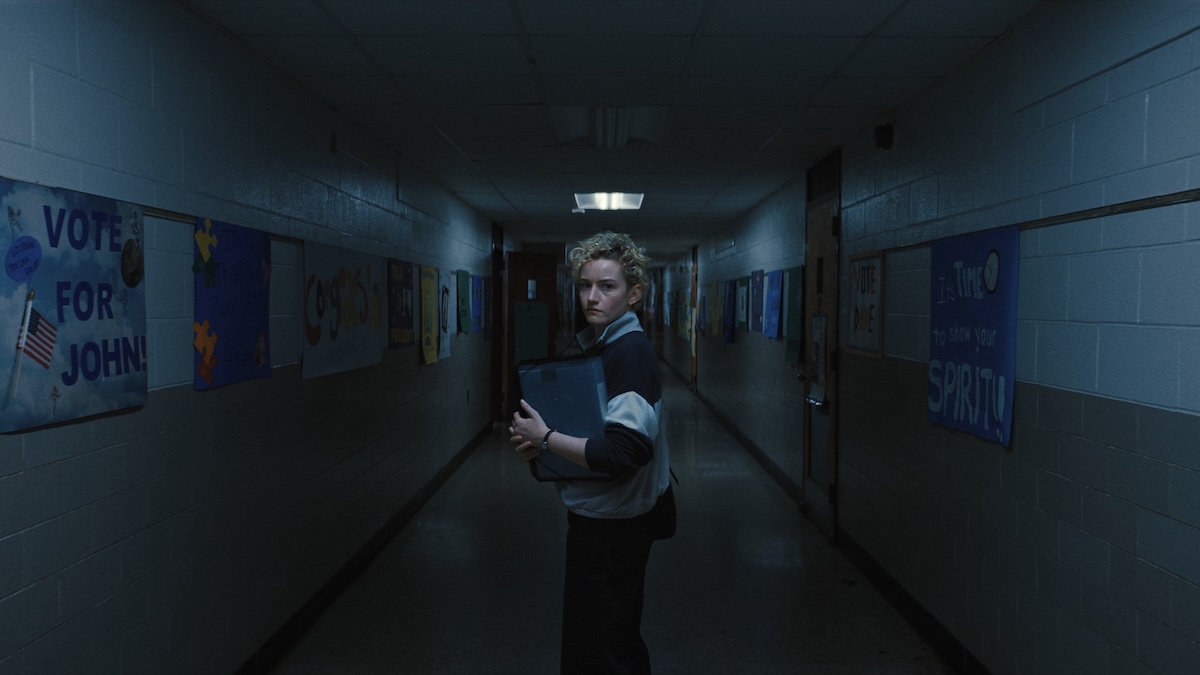
Presiding over the school is its principal (Benedict Wong), whose impartial demeanour borders on indifference as to whether his employee is a sadistic kidnapper. Elsewhere, an unhoused addict (Austin Abrams) haunts the nearby woods, living in a tent littered with needles. Finally, at the heart of the mystery lies Alex (Cary Christopher), the solitary student who remained asleep once the clock struck 2:17.
There’s an undeniable satisfaction in the ease with which Weapons builds suspense as these disparate strands interlace into a cohesive tapestry. Cregger manipulates the structure itself by deliberately halting each segment at the precise moment tension peaks. This narrative device is hardly revolutionary and has the capacity to frustrate viewers with a limited attention span. However, it’s an ingenious method to amplify tension exponentially as each successive chapter produces subtle fragments of information, deepening the central enigma while layering smaller uncertainties atop the overarching mystery.
Those anticipating a straightforward horror adhering to the same tone as Barbarian may be underwhelmed that Weapons straddles the boundary between crime drama and psychological thriller. Although there are some expertly manufactured thrills sprinkled throughout, Cregger inflicts the most excruciating punishment by leaning into the power of ambiguity. Larkin Seiple’s (Everything Everywhere All At Once) assaultive cinematography utilises ominous wide lenses and the prominent use of darkness to amplify the persistent sense of somnambulistic unease and encroaching paranoia.
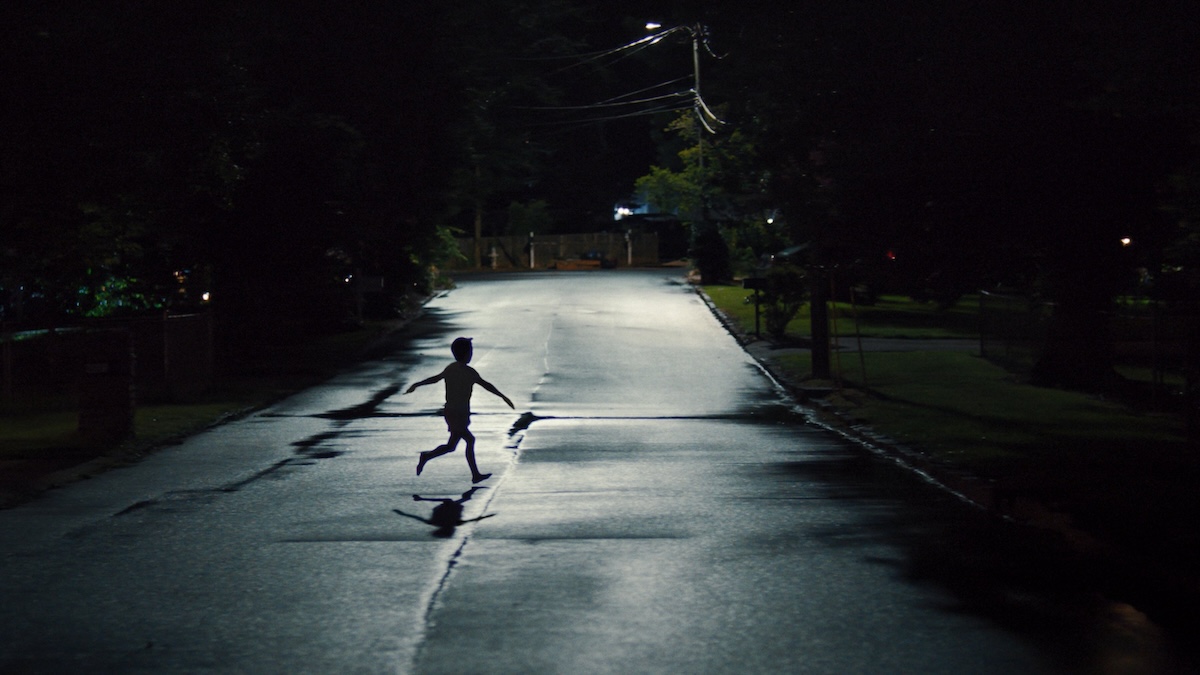
He frames his subjects in the centre of his compositions, leaving the vast space around them empty. This negative space is used to great effect, actively misdirecting the audience’s attention and subtly guiding our imaginations to project our most personal demons into the shadows. The true horror remains in the indistinguishable silhouettes standing under a specific doorframe or the voyeuristic figure that appears long enough to ensnare the viewer’s attention before quietly dissipating into the woodland. It’s relentlessly foreboding and continues to burrow into the audience’s subconscious long after the credits roll.
Yet, despite these moments of suffocating existential dread, Weapons is often wickedly funny. Having sharpened his comedic sensibilities in the anarchic sketch collective Whitest Kids U Know before venturing into genre cinema, Cregger cannot resist the impulse to destabilise his audience by oscillating between mordant comedy and nightmarish imagery. Whether it’s the oddly specific discovery of a Willow (1988) DVD, an unexpectedly eccentric performance, or the disturbingly inventive use of a vegetable peeler, he demonstrates an exacting command of seemingly contradictory tones by inserting flashes of unsettling levity into scenes otherwise suffused with terror.
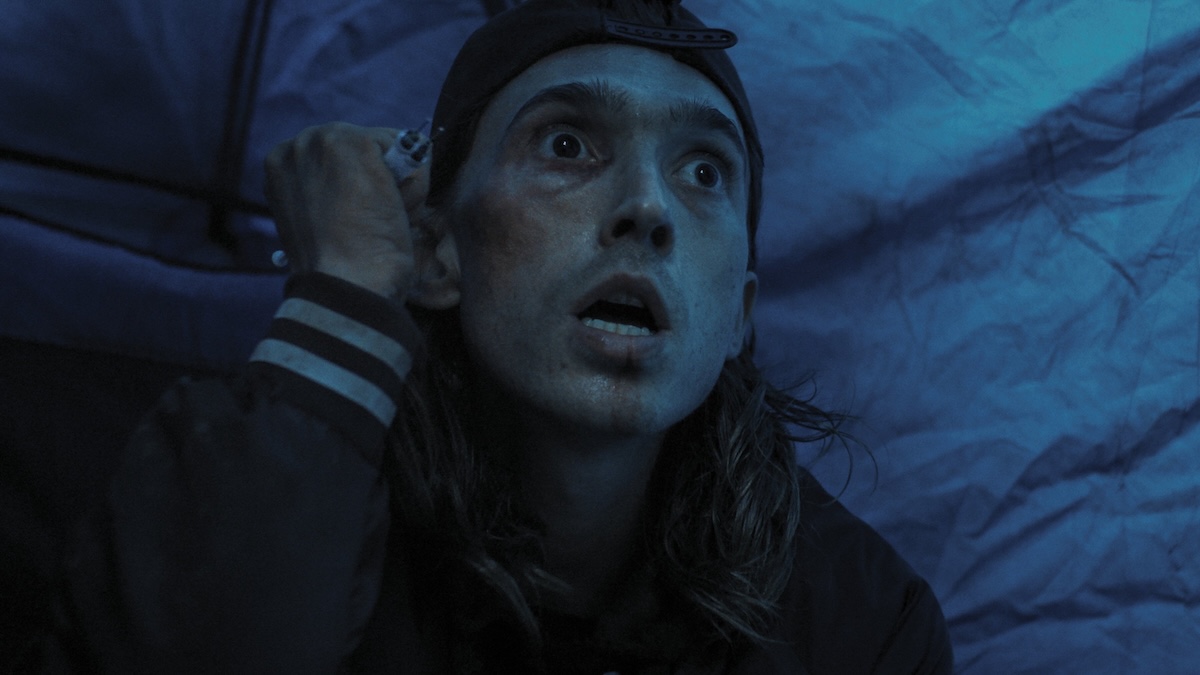
This delicate interplay stretches over the 130-minute runtime before snapping during an unsettling and audaciously gruesome crescendo that echoes Joseph L. Mankiewicz’s Suddenly Last Summer (1959). During this climax, it becomes immediately apparent why Jordan Peele severed ties with his long-time Artists First management after losing the bid to produce Cregger’s sophomore feature. Its masterful balancing of unnerving horror and sharp gallows humour would have made it a natural addition to the canon of his Monkeypaw Productions.
Beneath its suffocating atmosphere and flashes of visceral brutality, Cregger constructs a chilling allegory on the consequences of our current social and political state. Much like Barbarian married horror with an incisive commentary on misogyny and gendered violence, Weapons dissects the intoxicating allure and inevitable violence of collective conformity. In an era when online echo chambers and algorithmically engineered outrage are not unfortunate by-products but intentionally designed, the consequences of cult-like thinking have become real-life horrors.
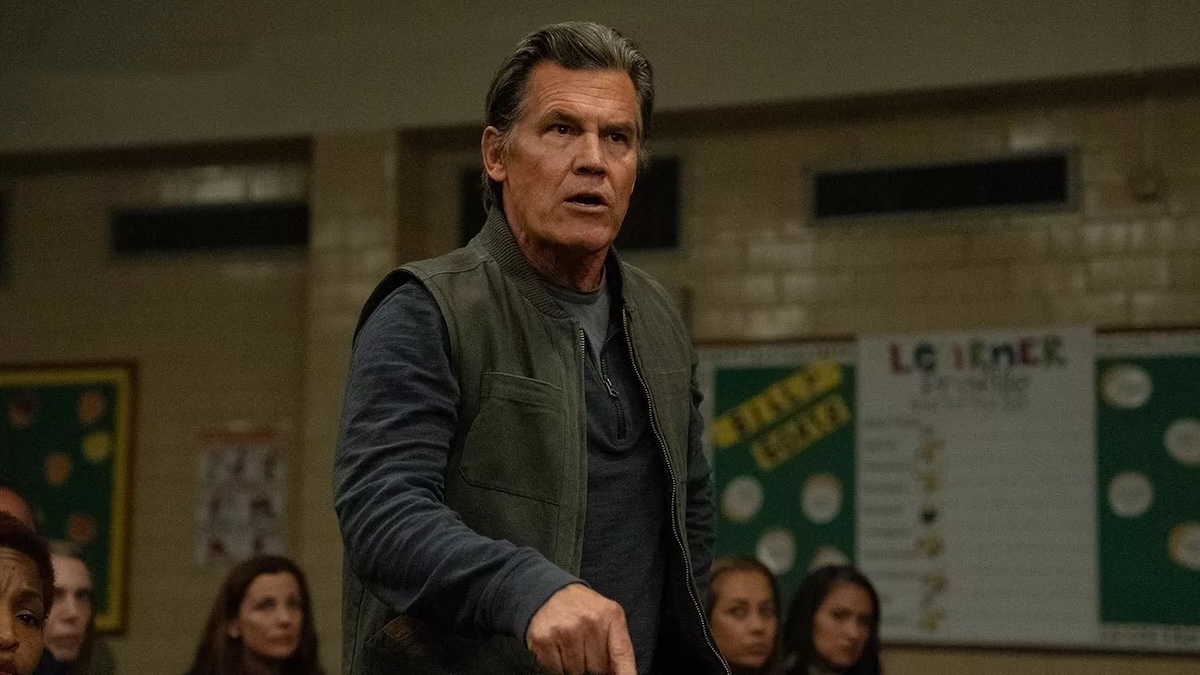
By breaking down his narrative structure into chapters, Cregger observes how ideological extremity affects individuals through different human lenses. Each segment reveals a new facet of collective thinking. Justine is humiliated into silence, Archer is curdled by bitterness, Paul is the dutiful bureaucrat, and Marcus adheres to fair practices. The conclusion is laced with deliberate ambiguity and has generated fervent debates across several corners of the internet. Yet the true horror lies not in its unanswered questions, but in the sobering reality that such a tragedy could deepen societal fault lines and justify the spouting of venomous rhetoric. It’s here that Weapons transforms from a chilling genre exercise into a trenchant reflection on our times.
Arriving in the immediate wake of Sinners (2025), 28 Years Later (2025), and Bring Her Back (2025), Weapons emerges as yet another formidable entry in what is proving to be an incredible year for contemporary horror. Zach Cregger solidifies his status as a filmmaker with a distinct vision, capable of combining impressive technical precision with audacious narrative ambition. Weapons is a precise breed of psychological terror that carefully embeds moments of horror within an astutely observed study of human frailty. Those patient enough to surrender to its unorthodox storytelling structure and methodical disquiet will be rewarded in the most exquisite ways. Its ambiguous undertones and truly shocking climax will undoubtedly frustrate many viewers, but Cregger intends to initiate conversations and allow the audience to walk away engaging with his complex ideas long after the credits fade.
USA | 2025 | 128 MINUTES | 2:39:1 | COLOUR | ENGLISH

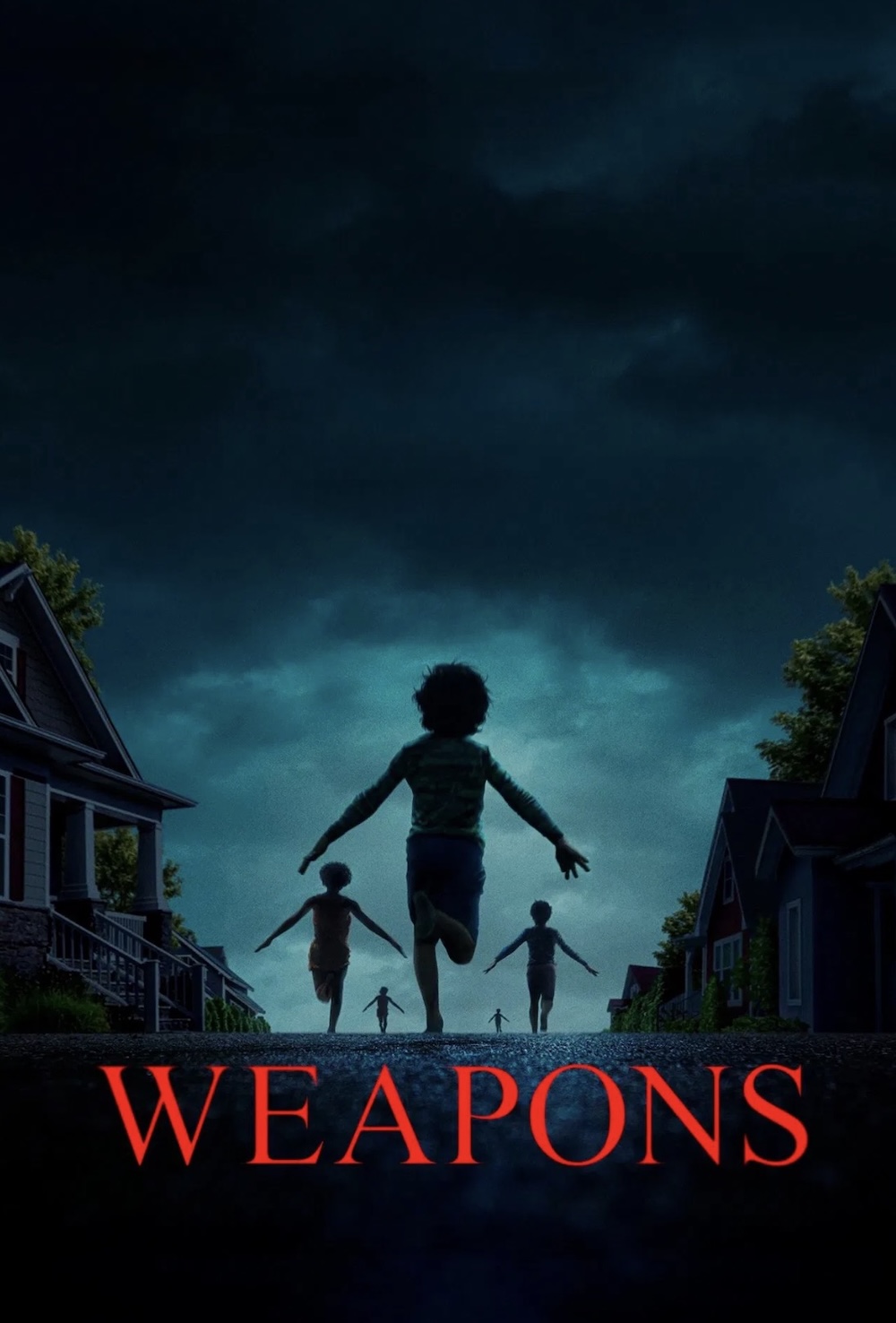
writer & director: Zach Cregger.
starring: Julia Garner, Josh Brolin, Alden Ehrenreich, Benedict Wong, Austin Abrams, Cary Christopher & Amy Madigan.
